As the sun rises over the mountains, the distant singing of local Tandroy women fetching water from the river welcomes you to another day at Mandrare River Camp. The camp's off the beaten path location, in the remote south of Madagascar, provides exclusive access to one of world’s most unique ecosystems. Experience this rare and important environment up close and immerse yourself in the biological and cultural diversity of Madagascar.
The charming tents combine authentic bush flair with the comfort of high-end accommodation. Each of our sites offers a stunning view of the tranquil waters of the Mandrare River and help create the perfect space to relax in after a day of exploring one of the most unique and remote places in Madagascar.
Relax after a day of discovery with a delicious three course dinner on the banks of the Mandrare river. Watch the sunset from your tent and then follow the soft glow of hurricane lanterns along the groomed path to the open dining room and enjoy a drink around the campfire and share dinner with the camp host and other guests or if you are seeking some privacy, have dinner brought to your terrace for a more intimate dining experience. (MadClassic)
Set overlooking the river and a golden sunrise, the fully equipped, bespoke tents allow you to relax, sleep well, and will inspire your soul. Each of the seven tents have spacious en-suite bathrooms and are located under the relaxing shade of old-growth tamarind trees. Each tent offers a breathtaking view of the Mandrare River that brings life to the Tandroy people and the arid deserts of southern Madagascar. Each tent is thoughtfully furnished with individually hand carved furniture that represents a unique and native wildlife theme from the surrounding region. Each tent opens onto a large, beautiful terrace that allows for comfortable outdoor seating and the option for private dining. Each of our seven tents offer a fully equipped bathroom with pressurized running hot water, king size bed with mosquito net, wardrobe, luggage compartment, dressing table, bedside tables with lights, and twenty-four hour solar lighting.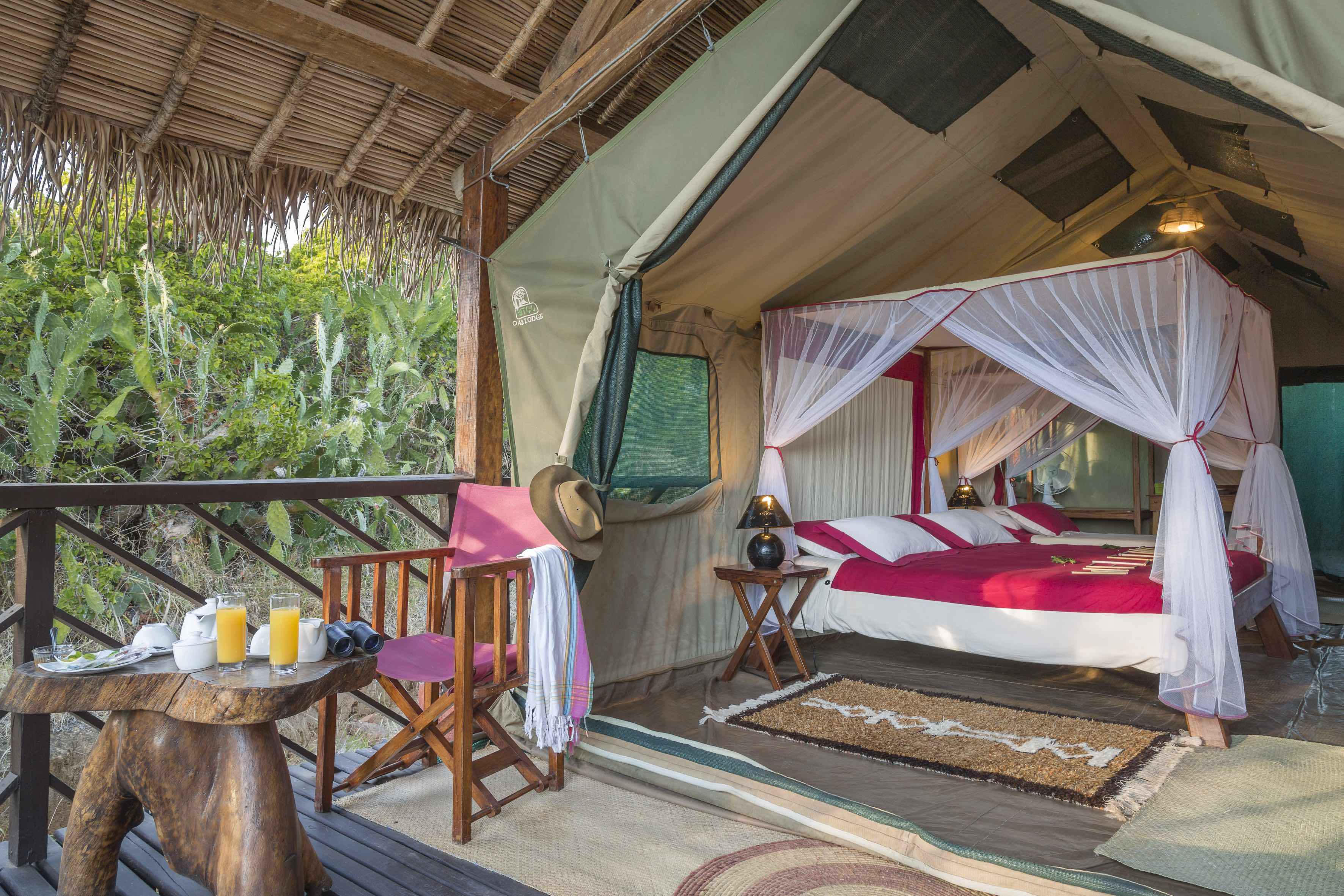
Set overlooking the river and a golden sunrise, the fully equipped, bespoke tents allow you to relax, sleep well, and will inspire your soul. Each of the seven tents have spacious en-suite bathrooms and are located under the relaxing shade of old-growth tamarind trees. Each tent offers a breathtaking view of the Mandrare River that brings life to the Tandroy people and the arid deserts of southern Madagascar. Each tent is thoughtfully furnished with individually hand carved furniture that represents a unique and native wildlife theme from the surrounding region. Each tent opens onto a large, beautiful terrace that allows for comfortable outdoor seating and the option for private dining. Each of our seven tents offer a fully equipped bathroom with pressurized running hot water, king size bed with mosquito net, wardrobe, luggage compartment, dressing table, bedside tables with lights, and twenty-four hour solar lighting.
The Mandrare river flows through one of the most unique and remote biological regions on planet earth, the river makes life possible for countless endemic plants, lemurs, and chameleons. Come and let us show you Madagascar at its most beautiful and truly at its most unique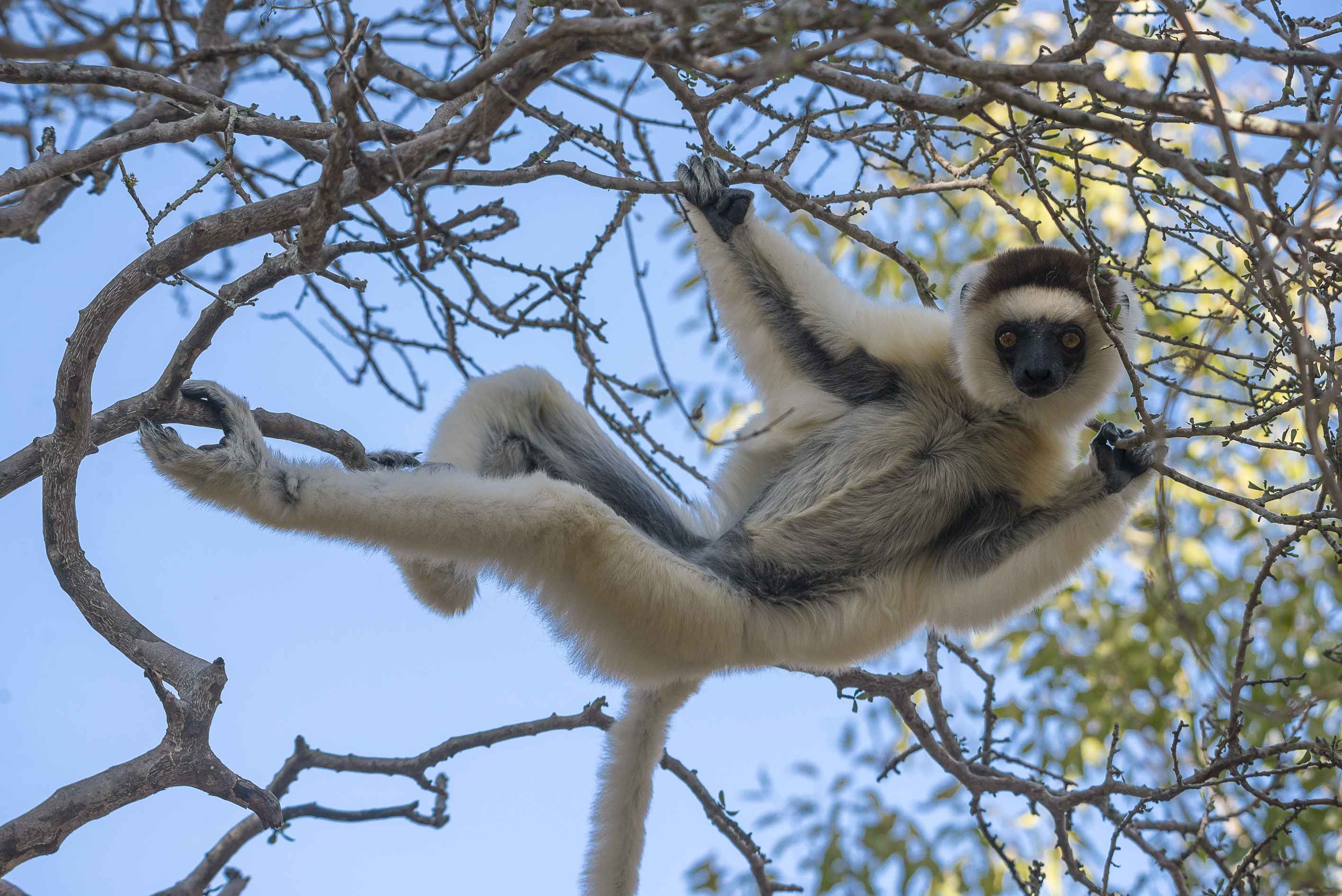
All activities at Mandrare River Camp are individually tailored to our guests' needs and are included in your stay. Whether you want to rise with the sun and spend a morning in search of rare and endemic birds and diurnal lemurs or wait until the sun sets to walk through the spiny forest to spot mouse lemurs and chameleons, you will be guided through your days by our outstanding and professionally trained guides in English or French. When not in search of rare plants and wildlife, take time to learn about the the life and traditions of the Tandroy people who live in this incredible place.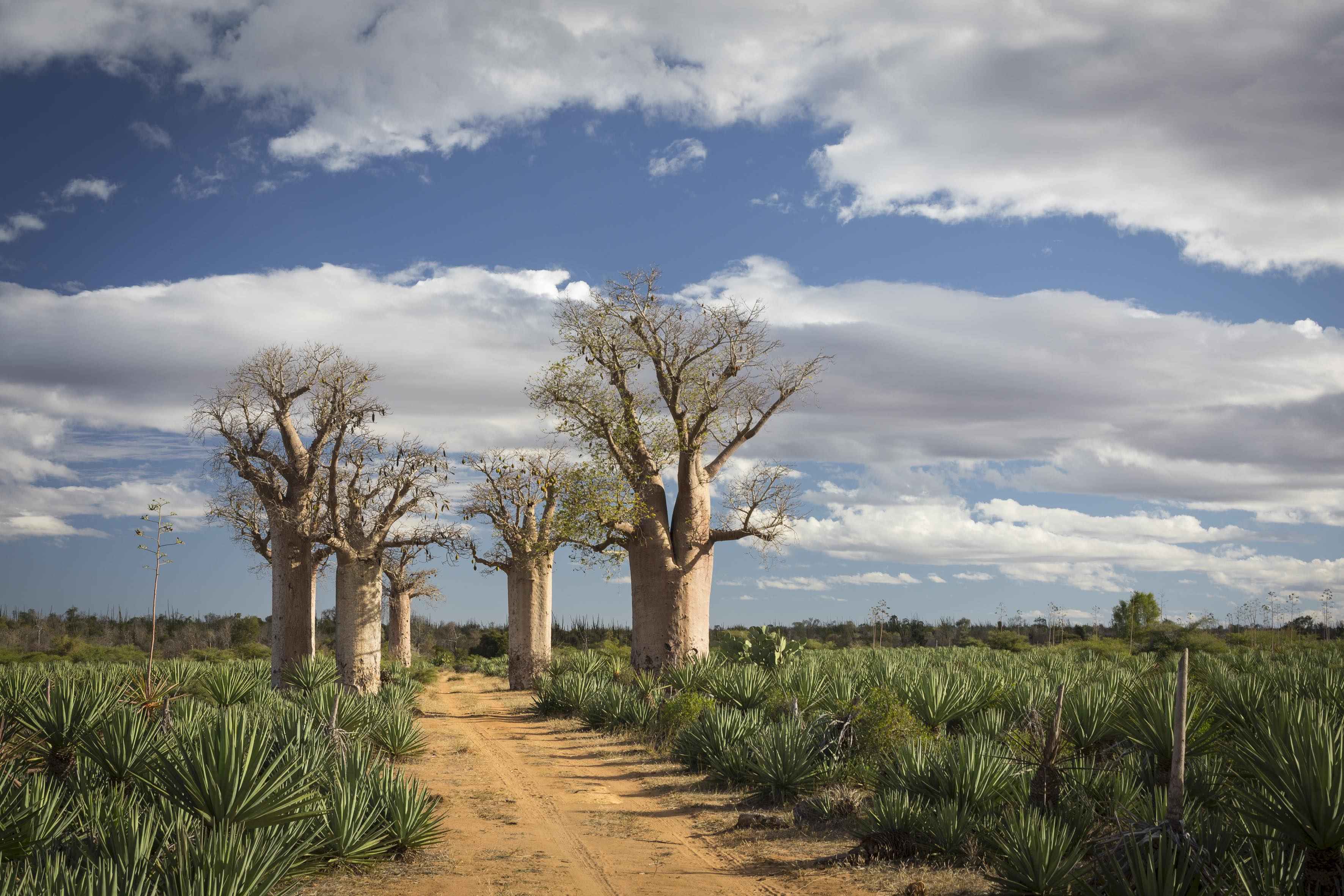
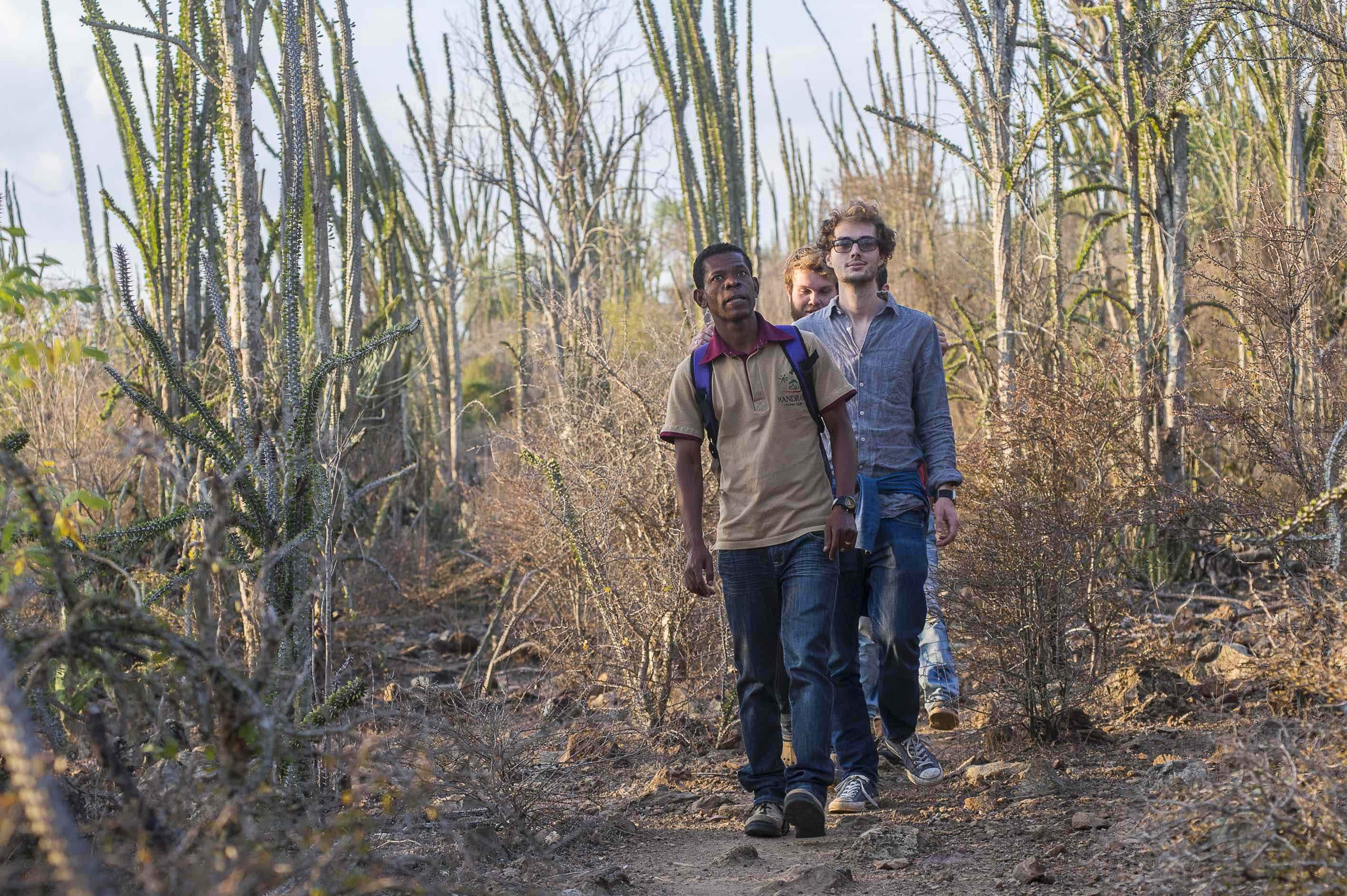
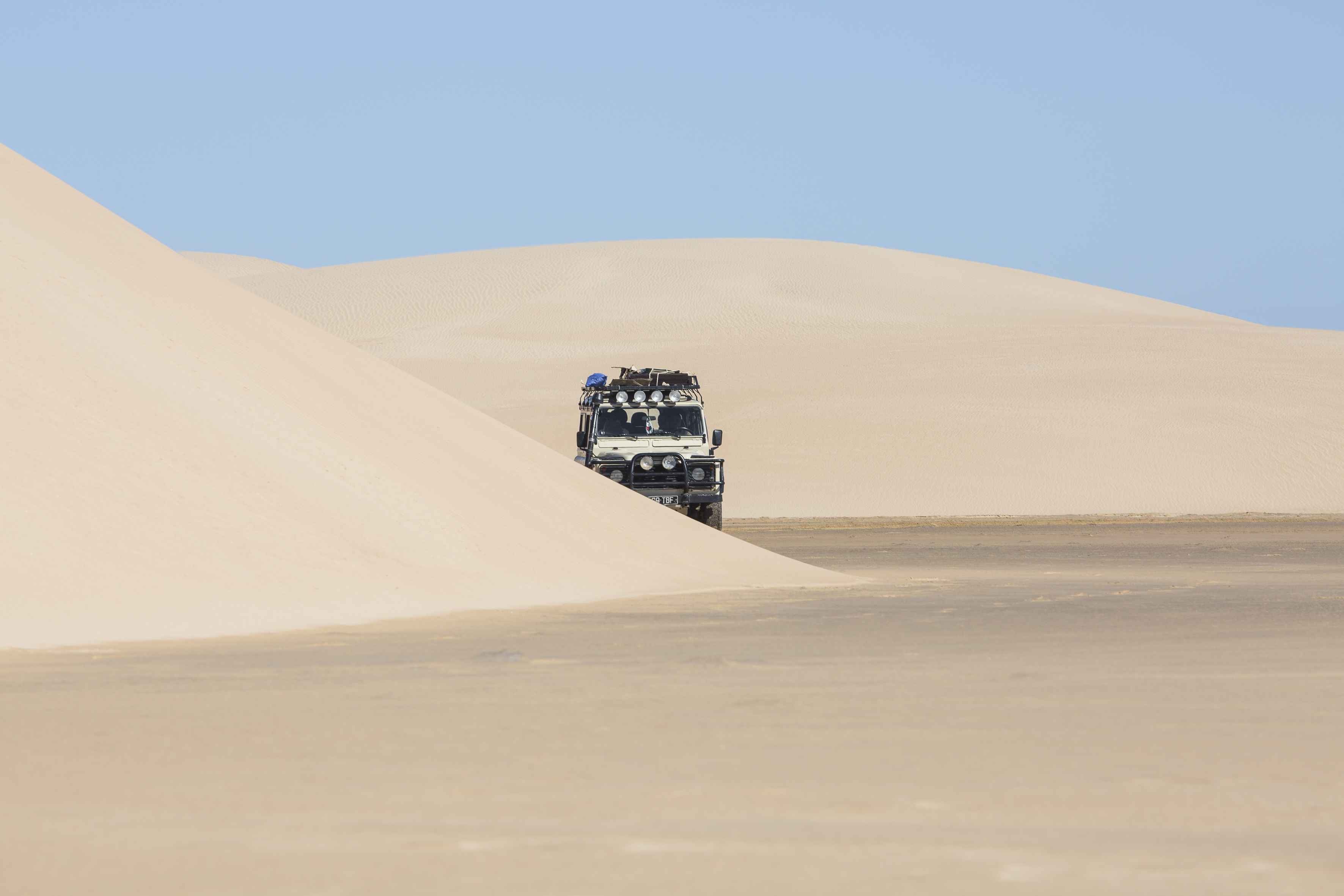
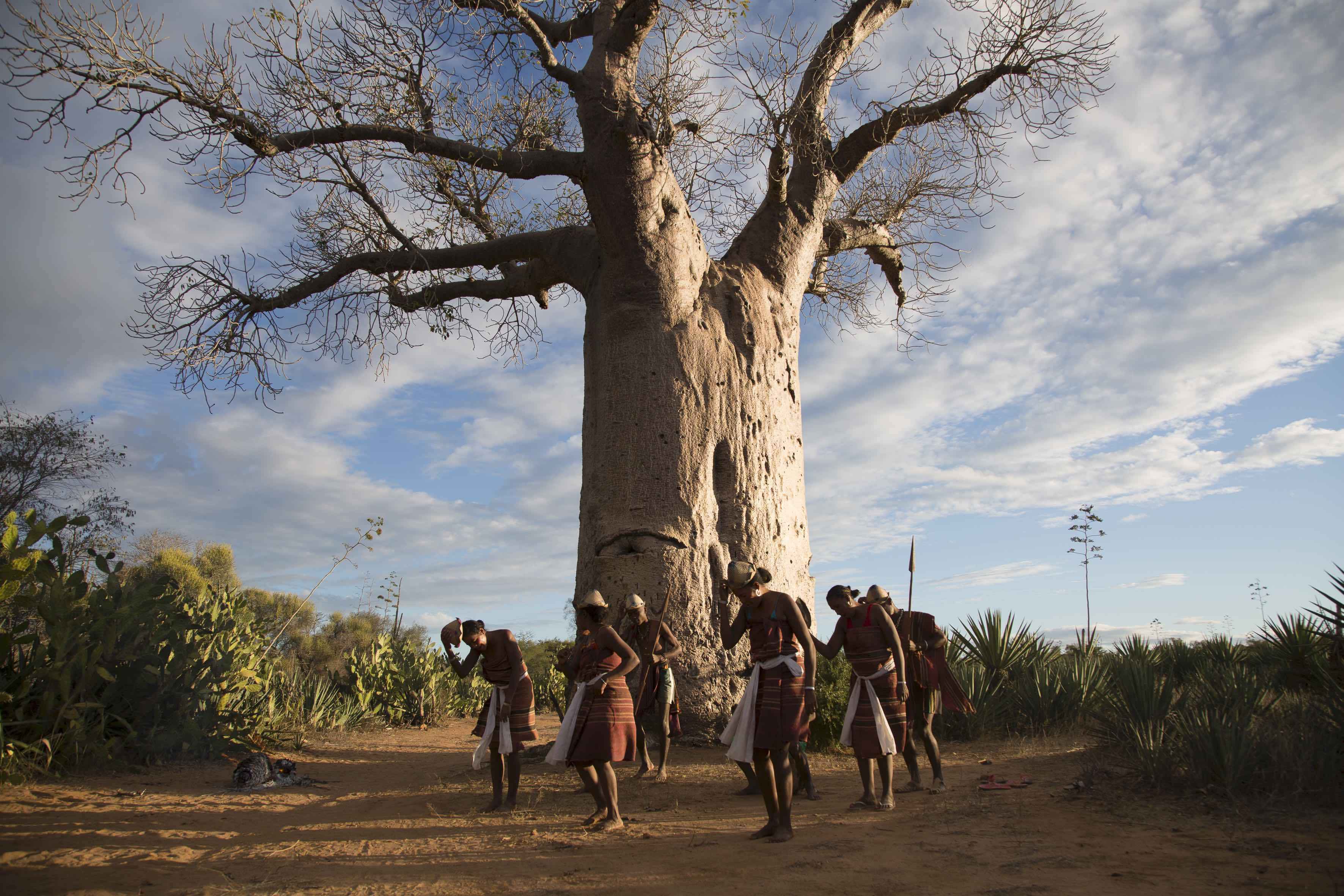
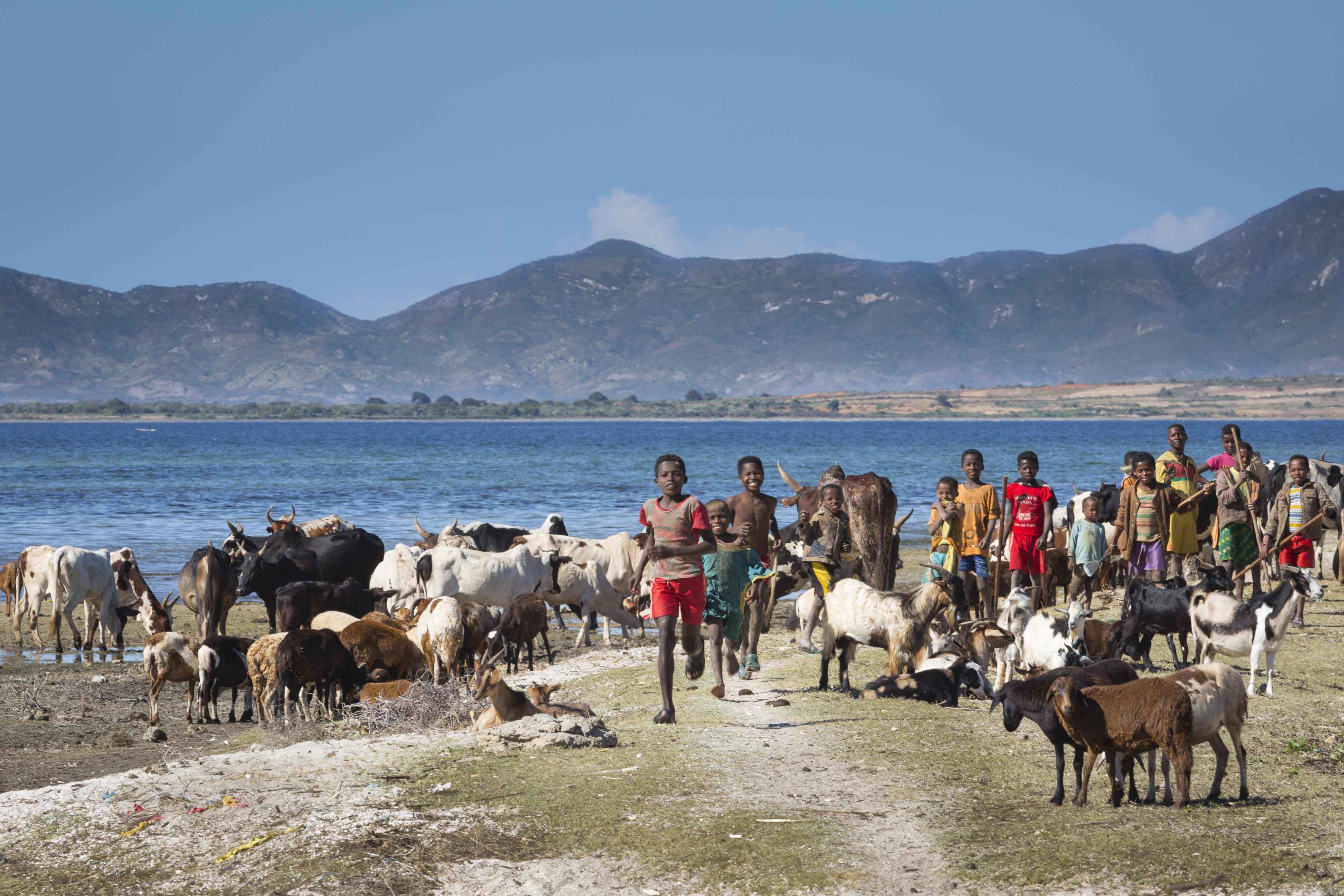
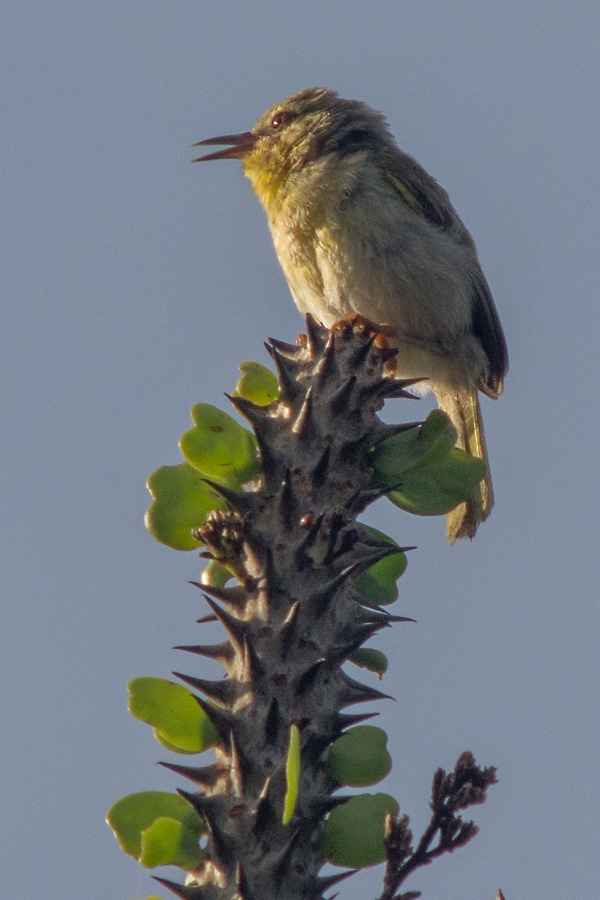
April
This is the month in the Mandrare Valley where everything is very green after the rains, the corn Harvest starts and it is still very warm, late summer. The birding is still surprisingly good and reptiles are very active indeed as they are well fed after the rains, this is an excellent time to visit and it offers high season experience at low season prices. We cross the Mandrare by boat in April (Zodiac) as it is still high, and we can offer trips to the sacred Gallery forest by boat, which is a lovely way to see the life along the river.
May
For those who prefer it a little cooler in the evenings, but still hot in the day May is a fantastic month to visit Mandrare, the river is still high and it is still green enough and warm enough for the animals to be active. The sun sets straight behind the baobabs in Baobab alley and the late autumn light all over Madagascar is great for photography.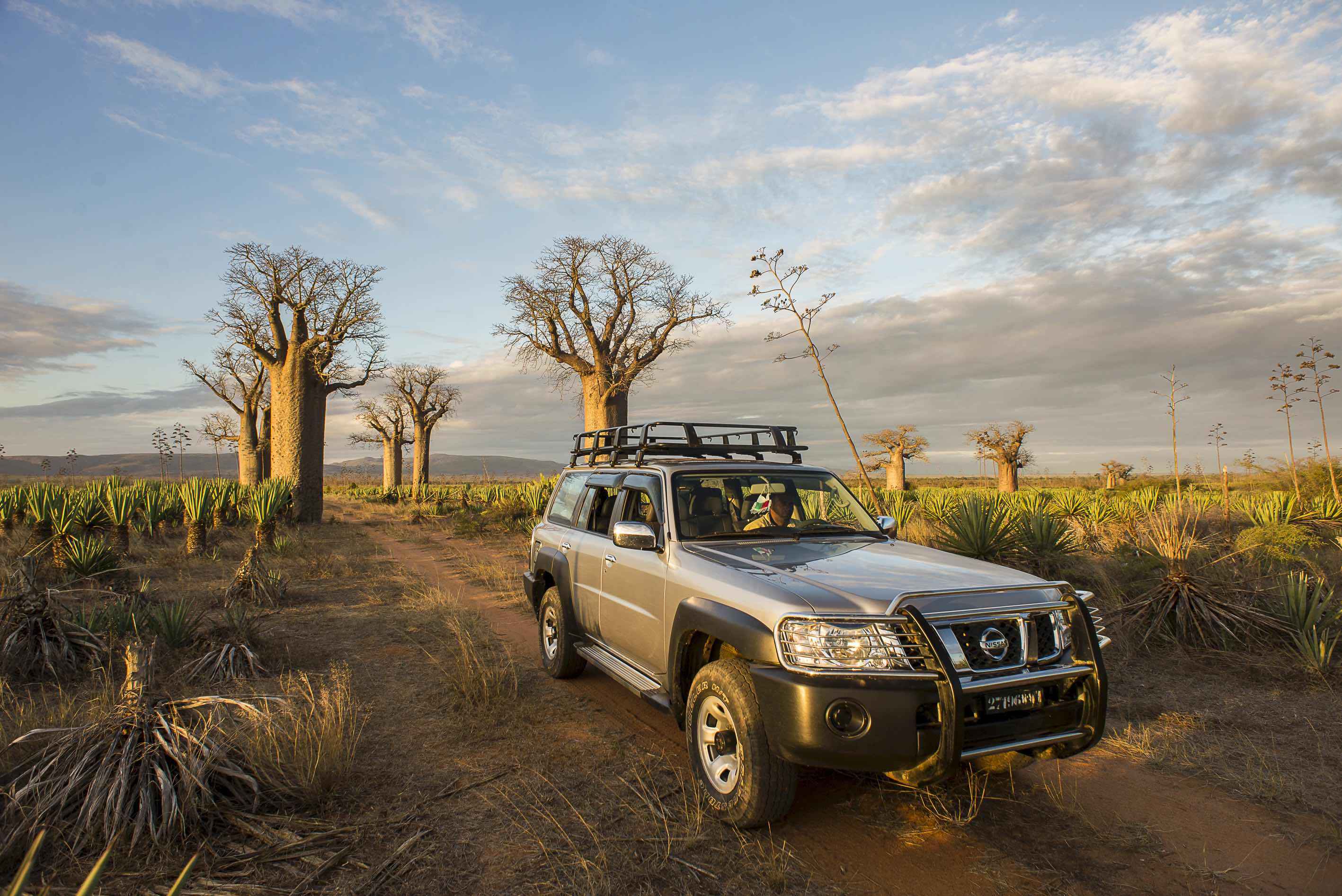
June
June is the start of winter and while it is still usually in the mid-twenties in the daytime, at night it can drop into the low teens. 26th of June is the national day holiday – Independence day and for those interested in the real culture of Madagascar this is a fantastic experience. All of the villages and schools participate in a big parade and there are lots of events that take place, cycling races, football matches etc. festivities start on the 24th and if you can time your visit for these days it is quite an experience!
July & August
These are the winter months and the driest time of the year (often with no rainfall at all for the two months). Both diurnal and nocturnal Lemurs are still easily seen and birding can be rewarding as the forest greenery starts to thin out after the rains. On the cultural side this is a very active period with many celebrations in the villages and also ceremonies such as exorcisms which are carried out in the winter months. Cultural life congregates at the river which is now the only reliable source of water for the entire valley. For those who enjoy hiking this is the ideal time to come as the cooler days allow for longer walks. The Verreauxs Sifaka start birthing in Late August and so it is a great time to see the smallest of young.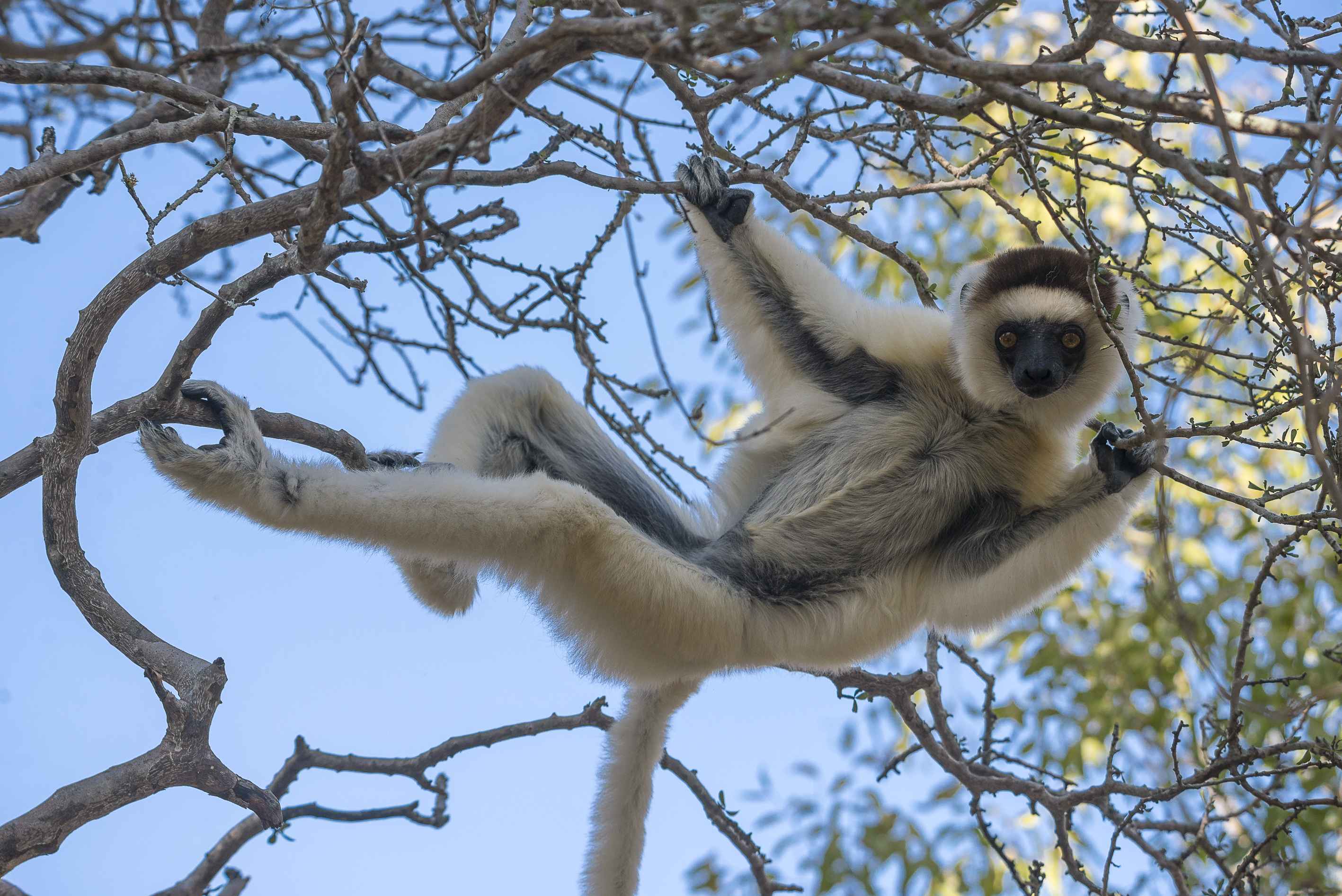
September
September is an interesting month, all sources of water have now dried, even the Mandrare becomes dry every few years, even when it is not it becomes a trickle you can step over! This means that wildlife requiring water is concentrated very close to the river and seeing Ringtails in large groups is very easy. The mating season has also started, with grey headed lovebirds and Paradise Flycatchers early nesters, The ringtails join the Sifaka in having young and so we start to see many baby lemurs.
October
This is the peak time for bird watchers as the mating season is in full flow, it starts to get hot during the day, and doesn’t cool down as much overnight, however the reward is that all species are highly active and easy to see. This is our peak season (October to Mid-November), due to the spectacular wildlife on offer. There may be the chance - usually between 8th and 25th October to see the River rise, if it has been totally dry then this is a great experience, as the Antandroy celebrate the first signs of the coming rains. The river rises due to rain in the mountains filling up the Mandrare catchment basin, rain in camp itself in October is still only about 2 or 3 days in the month and if it happens it is a brief afternoon thunderstorm, to clear the air and drop the temperature!
November
This is still peak season again with excellent birding and wildlife, rains will usually start early in the month, as a thunderstorm or two in the late afternoon, the mornings are glorious and the early sun rise permits activities prior to breakfast allowing long days for those who want to see lots of wildlife.
December
The humidity tends to generally drop off from November with just a couple of days prior to rain being humid, again afternoon thunderstorms are the usual rain if it comes (usually only a few days in the month), the river is high again and so floating down the river to the Sacred gallery forest is a great activity. The cultural side is not to be missed with lots of celebrations for Christmas and New Years.
Wildlife Wonders
Stay 4 nights / Pay 3
* Valid until Mar 31, 2026